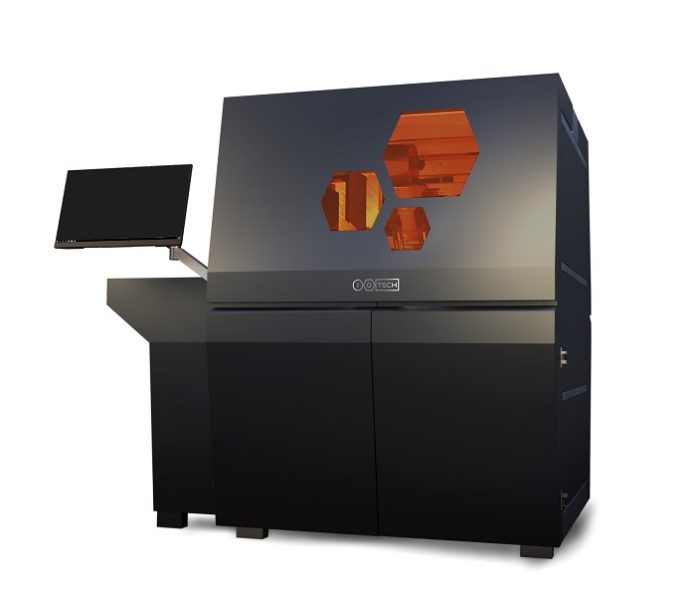ioTech Group Ltd (“ioTech”) will premiere full industrial scale digital production with the commercial launch of its io300 Continuous Laser-Assisted Deposition (C.L.A.D) printer range at productronica 2021, the international trade fair for electronics development and production.
In Messe Munich, Hall B2, Stand 217, from November 16 to 19, the fast-growing British-Israeli venture will demonstrate how the world’s first digital printer with C.L.A.D technology can process most industrial materials at high resolution and industrial productivity. ioTech is nominated for the productronica innovation award 2021.
For the first time, manufacturers can use their standard certified industrial materials, control the deposition of each single drop, and reach unmatched production yields.
The technology’s speed and resolution enable the delivery of commercial solutions across multiple industries. It holds great potential for digital mass-manufacturing applications such as semiconductor packaging and advanced printed circuit board production and assembly.
Ultra-fast, highly accurate, high-resolution printing of up to five different materials at the same time, including polymers, metals, ceramics, and solder, is made possible by the printer’s unique nozzle-free, non-contact laser jet printing and deposition capabilities.
ioTech’s C.L.A.D. system offers multiple advantages compared to existing material deposition technologies:
- As there are no nozzles to clog, it can handle materials with much higher viscosities than nozzle-based systems such as inkjet. Higher viscosity materials enable deposition of thicker layers, reducing deposition time, and higher viscosity conductive inks support higher aspect ratios, reducing electrical resistance without taking up extra space on the substrate.
- Material agnostic means material supply flexibility and allows for the use of current materials that have already met stringent OEM qualification requirements. Ceramics or metal pastes can be deposited along with polymers, adhesives, and solder.
- The non-contact method allows compatibility with any substrate material (including non-planar surfaces) unlike laser direct structuring (LDS). No additives are required.
- Unlike screen printing, which also supports the rapid deposition of high viscosity materials, C.L.A.D. is a digital method. This enables ‘mass customization’ as well as rapid prototyping (since a new mask is not needed for each iteration). It allows for designs with multiple materials and multiple layers.
- Current additive deposition methods in the PCB manufacturing space are slow and generally limited to prototyping with the final products made using traditional subtractive, or semi-additive, methods. The C.L.A.D. system is fast enough for high-mix low-volume manufacturing of high-end PCBs and can be used for both prototyping and production, adding process reliability and reducing development steps.
ASM Pacific Technologies and Henkel both recognized the significant potential of C.L.A.D. and joined ioTech’s journey through strategic investments in the company.
Hervé Javice, ioTech’s co-founder and CEO comments: “productronica is the perfect platform to demonstrate the unprecedented ability of the io300 printer range to deposit most flowable industrial materials. It allows operations to increase production efficiencies while embracing a more agile manufacturing approach. They can deliver fully functional products, fast and in an eco-friendly manner. They enable the production of “until-now-impossible-to-manufacture” designs. Our technology is set to change many manufacturing processes from SMT and packaging to PCB manufacturing. There are so many possibilities we are excited to share.”

